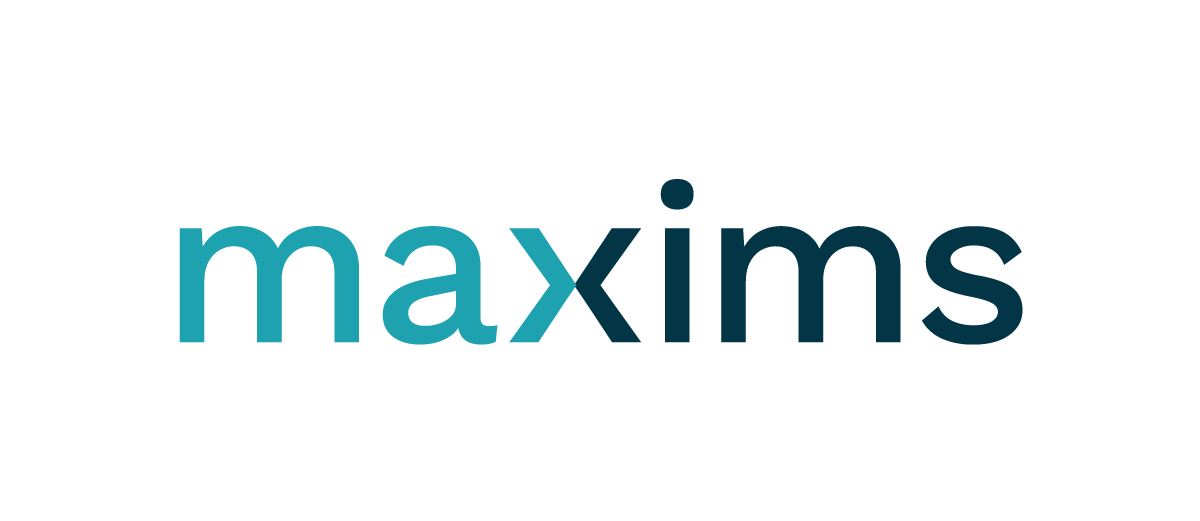Digital Healthcare in 2024: Key Trends Shaping the Future of Patient Care and Technology
As we reflect on 2024 here at IMS MAXIMS, it’s clear that the healthcare industry continues to undergo a significant digital transformation, with new technologies reshaping how care is delivered, managed, and experienced. From AI-powered decision-making tools to increased focus on patient engagement. However, this progress hasn’t come without its challenges. Data interoperability issues remain a persistent hurdle, making it difficult for some systems to exchange information across platforms, impacting care coordination. Cybersecurity threats, regulatory compliance demands, and the complexities of managing vast amounts of patient data have also been major concerns.
In this blog, we’ll explore some of the key trends that have defined digital healthcare over the past year.
To kick things off, let’s start with one of the most significant trends that has taken centre stage over the past year - not only in healthcare but also across industries such as finance, manufacturing, retail, and transportation...
AI and Machine Learning: Enhancing Clinical Decision-Making
AI and machine learning (ML) have emerged as transformative tools across many industries, becoming an integral part of global digital transformation, and its ability to improve decision-making, automate tasks, and generate insights will continue to shape industries across the board.
In 2024, AI algorithms are helping clinicians make faster, more accurate diagnoses and personalise treatment plans for patients.
For EPR suppliers, integrating these technologies into systems is a priority, enabling better decision-making, reducing errors, and improving patient outcomes. However ethical challenges need to be addressed such as clinical safety, protecting privacy, mitigating bias and ensuring transparency and accountability.
Clinical Safety Forthcoming Changes
NHS England has commenced a review of digital clinical safety standards DCB0129 and DCB0160 to ensure they remain up-to-date, practical and aligned with the latest advancements in healthcare technology and clinical practice.
The clinical safety standards were introduced as part of the Health and Social Care Act in 2012 though haven't been updated since 2018, since that time there has been greater digitisation of healthcare and new technologies such as AI are transforming clinical workflows. IMS MAXIMS clinical safety encompasses the design, development, deployment, and ongoing maintenance of our solutions to minimise the risk of harm to patients. For us clinical safety is not just a regulatory requirement but a foundational principle that guides us through our entire operation and we look forward to inputting the focus groups as part of the DCB0129 review in the new year.
Interoperability: Connecting Systems for Seamless Care
Interoperability remains critical as healthcare organisations seek to improve care coordination. The adoption of FHIR standards continues to drive better data exchange across different platforms, ensuring that patient data is accessible, timely, and accurate.
At IMS MAXIMS, we recognise the challenges that healthcare organisations face in achieving true interoperability, which is why our EPR’s are designed with integration capabilities. Ensuring seamless integration with other healthcare platforms is essential for improving workflows and patient care.
Telemedicine and Virtual Care: A New Normal
Telehealth has evolved from a pandemic response to a permanent feature of healthcare delivery. Virtual consultations and remote monitoring tools are helping reduce patient wait times and improve access to care. As an EPR provider, supporting telemedicine integration has been a priority of ours, allowing healthcare professionals to offer continuous, remote care.
With the pressure the NHS is under to recover urgent and emergency care services, virtual wards are being utilised to empower patients to manage their health and care at home. This has the potential to improve both patient experience, patient flow and continue to move to a more sustainable NHS. We see the utilisation of virtual wards in both step up and step down scenarios as an important step in freeing up clinician time and allow investments to be focused elsewhere.
We will continue to support organisations in tackling the challenges that surround patient flow and recognise the role an EPR provider can play in helping to tackle some of these challenges.
Data Security and Privacy: Strengthening Cyber Defences
With the rise of digital health solutions available, cybersecurity remains a top concern. The impact of cyberattacks on patient safety cannot be overstated, as breaches can compromise not only privacy but can have a cascading effect on patient care and the broader healthcare system.
Patient safety is at the centre of everything we do at IMS MAXIMS and protecting the systems that support healthcare delivery is fundamental to maintaining trust and ensuring the highest standards of care. We’re proud to have successfully transitioned to ISO 27001:2022 certification, underscoring our unwavering commitment to security and ongoing investment in protecting the sensitive data entrusted to us.
Sustainability: Green IT in Healthcare
Sustainability is a key priority in healthcare IT. Many organisations are adopting more energy-efficient solutions, moving to cloud infrastructures, and reducing paper-based processes. At IMS MAXIMS, we recognise the critical importance of sustainability and are committed to fostering a more sustainable business model. As part of this commitment, we are actively developing our Environmental, Social, and Governance (ESG) policy to guide our practices and align with the NHS Net Zero Supplier Roadmap. Our goal is to reduce our environmental footprint, contributing to a greener, more sustainable healthcare ecosystem.
Looking Ahead: The Future of Healthcare IT
2024 has been a year of innovation in digital healthcare, driven by advances in AI, data security, and cloud technology. Here at IMS MAXIMS, we’re committed to staying at the forefront of these trends, supporting our customers deliver better care, improve efficiency, enhance patient experiences, and improve outcomes.
As the digital transformation continues, we look forward to supporting our customers in navigating the evolving healthcare landscape and embracing the future of patient-centered care.

